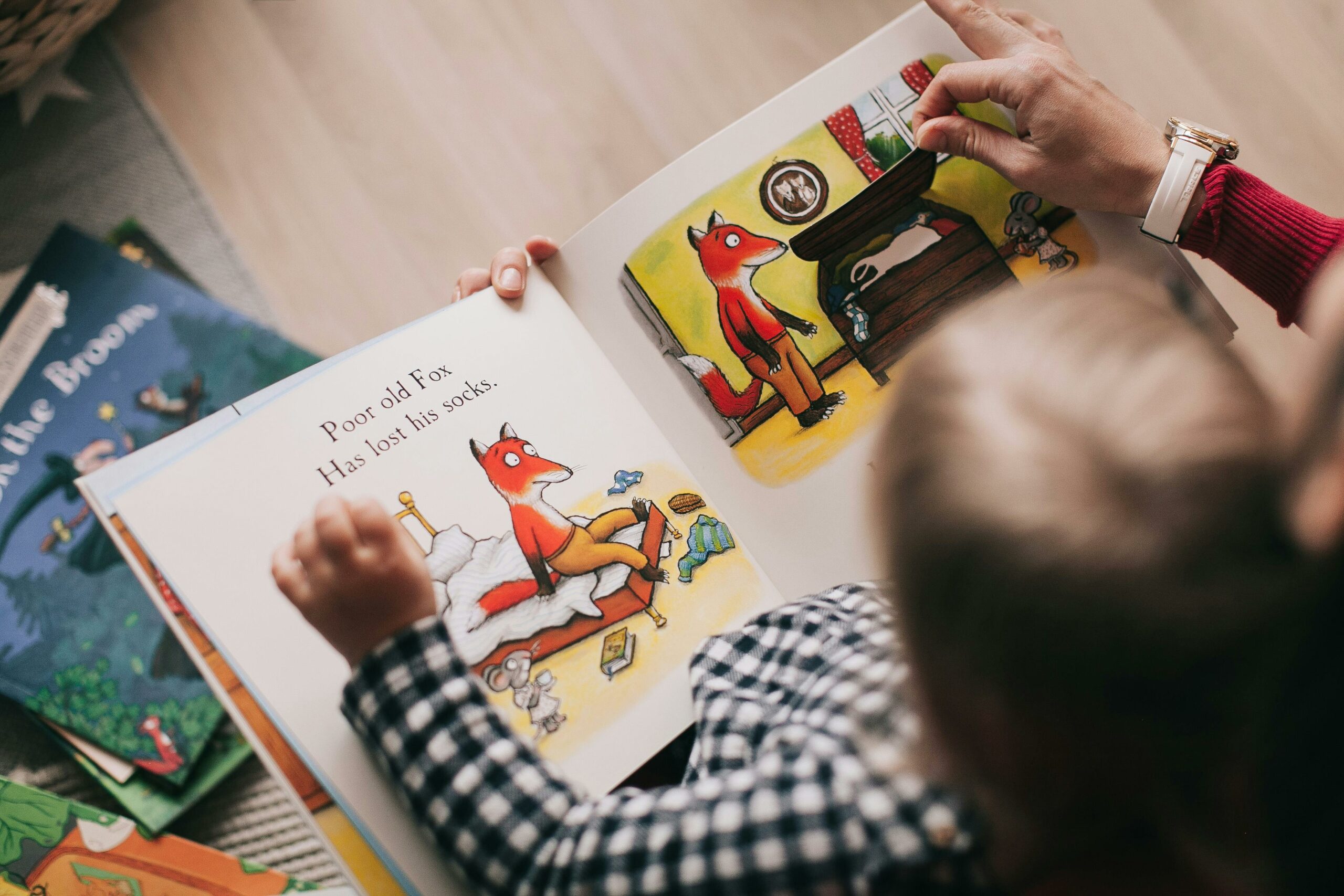How Reading to Your Child Shapes Their Future

Meet Sammy the Fox, a curious little critter who loves to explore the world through stories. Every night, Sammy’s mom gathers a stack of colorful books, and together they dive into adventures with dragons, astronauts, and talking trains. What Sammy doesn’t realize is that these storytimes are doing much more than just filling his evenings with fun—they’re building the foundation for his future.
Let’s explore why reading to children is so important, and how choosing the right children’s educational books, fun children’s books, and interactive children’s books can make all the difference.
Why Reading to Children Matters
Reading aloud to children is one of the most powerful ways to support their development. It helps them build language skills, introduces them to new vocabulary, and fosters a love of learning that lasts a lifetime. Even a few minutes a day can expose kids to hundreds of thousands of words, giving them a head start when they begin school.
But the benefits go beyond academics. Storytime is a special moment for connection, helping children feel safe, loved, and understood. When parents and caregivers read with their children, they strengthen emotional bonds and create memories that last forever.
The Role of Children’s Educational Books
Children’s educational books are more than just tools for learning ABCs and 123s. They introduce young readers to the world around them, helping them understand new concepts, cultures, and ideas. Educational books can spark curiosity, build background knowledge, and make complex topics accessible—even for the youngest learners.
Sammy the Fox loves his educational books about animals and space. With each page, he learns new facts and asks big questions, setting the stage for lifelong learning.
The Power of Fun Children’s Books
Fun children’s books, those filled with humor, adventure, and whimsical characters, are essential for keeping kids engaged. When children enjoy what they’re reading, they’re more likely to develop positive attitudes toward books and reading in general. Laughter and excitement during storytime can help children associate reading with joy, not just homework.
Sammy’s favorite is a silly story about a pancake-flipping penguin. He giggles through every page, and without even realizing it, he’s expanding his vocabulary and improving his comprehension skills.
Engaging All the Senses
Interactive children’s books take storytime to the next level. With flaps to lift, textures to touch, and questions to answer, these books invite children to participate actively in the reading experience. This hands-on engagement helps develop fine motor skills, attention spans, and a deeper understanding of the story.
For Sammy, interactive books are a delight. He loves pressing buttons that make animal sounds and tracing letters with his finger. These moments turn reading into a multisensory adventure, making learning both memorable and meaningful.
Lifelong Benefits
Reading to children doesn’t just help them become better readers. It supports their social and emotional growth, helping them develop empathy, imagination, and resilience. Books allow children to see the world through others’ eyes, understand different emotions, and navigate challenges in a safe, supportive environment.
Sammy the Fox might not realize it, but every story he hears is helping him grow into a thoughtful, creative, and confident little fox.
Tips for Storytime Success
- Choose a mix of children’s educational books, fun children’s books, and interactive children’s books to keep things fresh and engaging.
- Make reading a daily habit, even if it’s just for a few minutes.
- Encourage questions and conversations about the story.
- Let your child pick out books that interest them—ownership boosts motivation.
Reading to children is one of the greatest gifts you can give. Whether you’re sharing a classic fairy tale, a laugh-out-loud adventure, or a hands-on interactive story, you’re helping your child build the skills and confidence they need to thrive. Just ask Sammy the Fox—every story is a step toward a brighter, more imaginative future.



